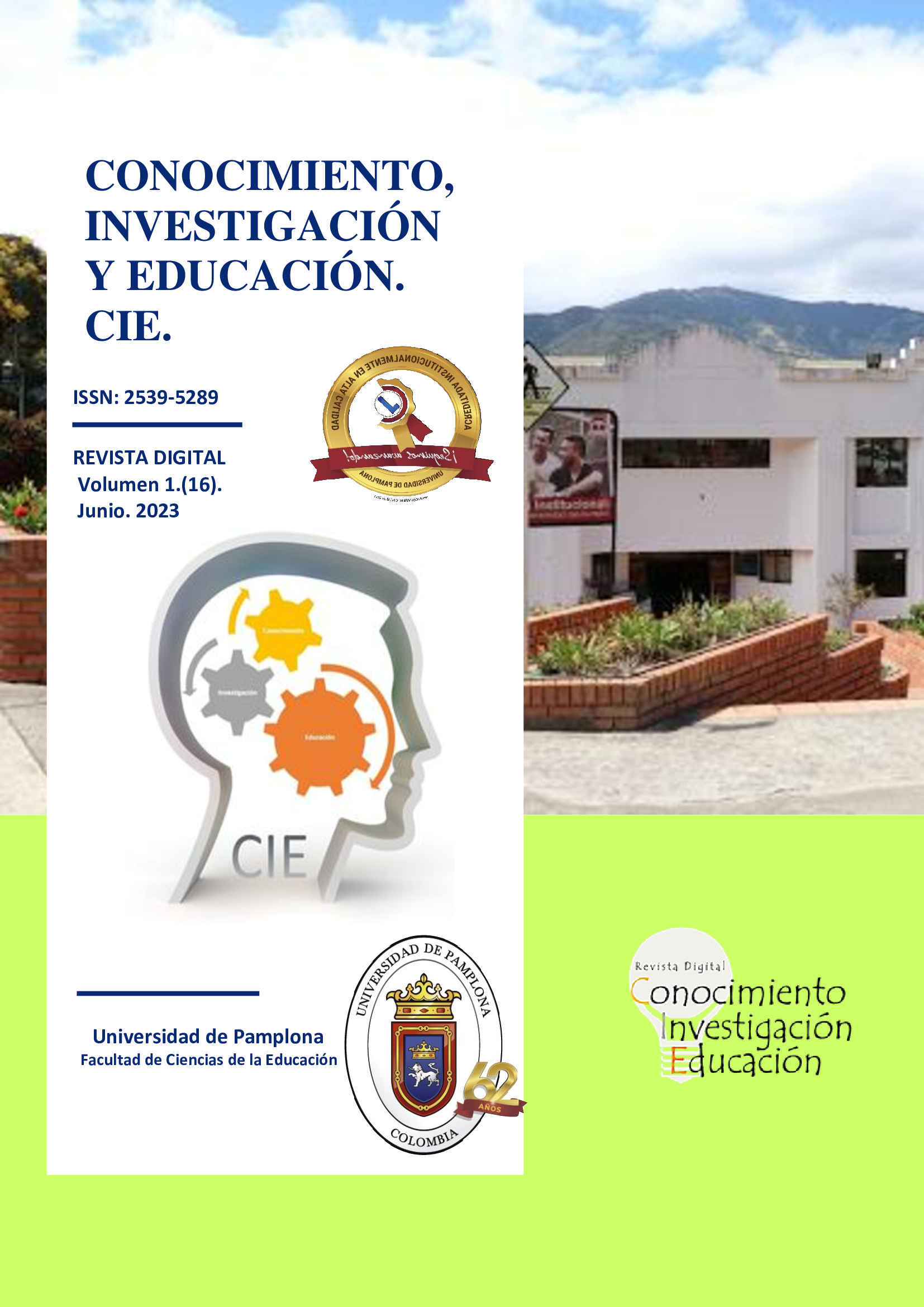Lúdica como estrategia pedagógica para el fortalecimiento del pensamiento numérico
DOI:
https://doi.org/10.24054/cie.v1i16.2427Palabras clave:
Didáctica, matemáticas, lúdica, pensamiento numérico, estrategiasResumen
El sistema educativo colombiano contempla entre su proceso formativo el aprendizaje numérico y la adquisición de habilidades con relación al cálculo mental. Es por ello, que esta reflexión relacionada con la “Lúdica como Estrategia Pedagógica para el Fortalecimiento del Pensamiento Numérico en Educandos de Básica Primaria” está basada en la experiencia que se vive en el Instituto Técnico Arquidiocesano San Francisco de Asís Sede Santa Marta de Pamplona, en Norte de Santander, donde se observan falencias en las estrategias aplicadas por algunos docentes para la enseñanzas de los contenidos matemáticos, evidenciándose en los estudiantes al momento de ellos elegir el área de aprendizaje de su preferencia, al desarrollar actividades básicas en tiempo establecido, en el aprendizaje armónico de los contenidos y las pruebas Saber que se desarrollan en los diferentes niveles. Este proceso causa interés de investigación.
Descargas
Referencias
Acevedo, J., & Fiorentini, D. (2017). Formación del futuro profesor de matemática en el contexto de la práctica docente de la UNICAMP (Brasil). Revista Conocimiento, Investigación y Educación (CIE), 2(4), 18–24.
Bracho, Y., & Bracho, K. (2020). Estrategias pedagógicas para el fortalecimiento de valores a través de juegos tradicionales en educandos de educación inicial. Revista Conocimiento, Investigación y Educación (CIE), 1(9), 26–44.
Bravo. (2008). Estrategias pedagógicas y didácticas para el desarrollo de las inteligencias múltiples y el aprendizaje autónomo. Recuperado el 14 de mayo de 2021, de https://academia.unad.edu.co/images/investigacion/hemeroteca/revistainvestigaciones/Volumen12numero1_2013/a06
Cabrera-Berrezueta, B. (2016). La estrategia pedagógica como herramienta para el mejoramiento del desempeño profesional de los docentes en la Universidad Católica de Cuenca. Revista Cubana de Educación Superior, 35(2), 72–82.
Cárdenas, S., Piamonte, D., Contreras, D., Gordillo, D., & Castellanos, L. (2017). Desarrollo del pensamiento numérico. Pensamiento y Acción, (23), julio–diciembre.
Castrillón, Y., & Mora, P. (2021). Práctica pedagógica y formación de maestros íntegros e inclusivos. Revista Conocimiento, Investigación y Educación (CIE), 2(12), 48–57.
González, E., Villadiego, K., & Rodríguez, E. (2022). Tiflotecnología en el aprendizaje de las matemáticas en estudiantes con discapacidad visual. Revista Conocimiento, Investigación y Educación (CIE), 2(15), 41–54.
Guerrero, D., Rojas, D., & Escalona, J. (2022). Las prácticas pedagógicas y la educación inclusiva: Un escenario de reflexión. Revista Conocimiento, Investigación y Educación (CIE), 1(14), 114–124.
Minerva, C. (2002). Estrategias lúdicas como herramientas de trabajo educativo. Educere, 6(19), 289–296.
Monsalve, J., Marqués, G., Foronda, M., Mena, L., & Córdoba, R. (2016). La lúdica como instrumento para la enseñanza-aprendizaje [Trabajo de grado, Fundación Universitaria Los Libertadores].
Parra, C., Durán, X., & Chamba, J. (2020). Estrategias didácticas para fortalecer la dimensión ética en instituciones de básica primaria. Revista Conocimiento, Investigación y Educación (CIE), 2(10), 44–56.
Rodríguez-Manosalva, Y. (2017). El cuerpo y la lúdica: herramientas promisorias para la enseñanza y aprendizaje de las matemáticas. Sophie, 13(2), 46–52.
Ruiz, A. (2011). Estrategias para la enseñanza de las matemáticas. Temas para la educación. Revista Digital para Profesionales de la Enseñanza, (14), mayo.
Descargas
Publicado
Número
Sección
Licencia
Derechos de autor 2023 CONOCIMIENTO, INVESTIGACIÓN Y EDUCACIÓN CIE

Esta obra está bajo una licencia internacional Creative Commons Atribución-NoComercial-SinDerivadas 4.0.










